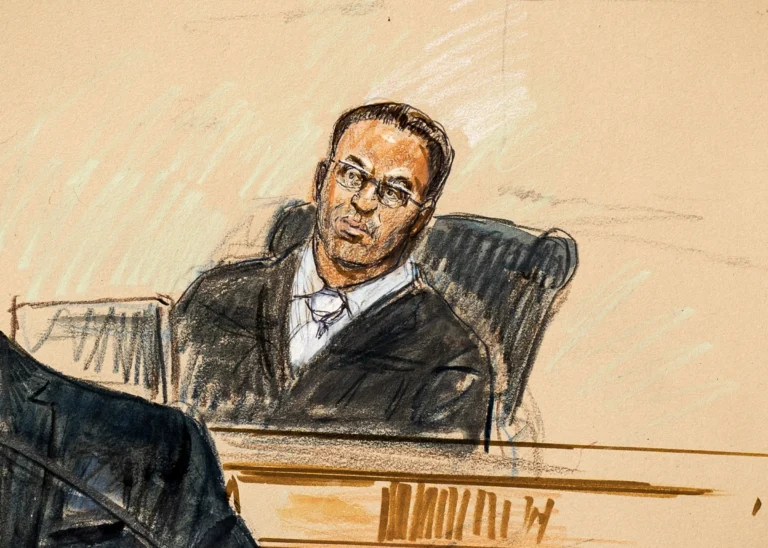After nearly five years of intense litigation, the landmark United States v. Google antitrust trial is finally over.
Judge Amit P. Mehta ruled last fall that Google illegally monopolized internet search for more than a decade by paying smartphone makers, wireless carriers, and web browsers to be the default—and sometimes exclusive—search engine for users. The case then moved on to the remedies stage, where Justice Department attorneys asked for a sweeping order that ranged from the forced sale of Google’s Chrome web browser, to a ban on all illegal pay-to-play deals, to prophylactic relief that would prevent Google from re-using the same playbook to extend its power into the nascent generative AI sector. Google unsurprisingly asked for a far narrower fix.
On Tuesday, Judge Mehta issued his long-awaited remedy decision, to very mixed reactions. Although the Justice Department may still decide to appeal, it issued a triumphant press release, and DOJ Assistant Attorney General Slater described the agency’s mood as “glass half full.” One big reason for that optimism: the order’s scope will include some fencing-in protections for generative AI markets. Google can no longer leverage its popular Play Store or Maps to coerce smartphone makers into also preinstalling Google’s Gemini AI app on their phones. Google will also have to license its massive cache of data compiled by scraping most of the web, as well as its sought-after search results, to would-be rivals. The underlying idea, pushed by DOJ’s attorneys at the remedies hearing earlier this year, is that a disruptive new technology like generative AI might be our best hope for unleashing real competition in this space.
Other observers are far less sanguine. Criticism of the opinion immediately zeroed in on the fact that the remedy won’t actually address the conduct that landed Google in antitrust trouble. Laypeople and antitrust experts alike tend to view terminating illegal behavior as a bare minimum response to proven violations. Most of us learn this on the playground. Or, as a leading scholarly treatise on antitrust puts it, “relief properly goes beyond merely ‘undoing the act.’”
Yet this remedy order won’t undo, or even halt, the illegal acts. Google can keep paying Apple billions of dollars each year to be the default search tool on hundreds of millions of iPhones, keep paying Mozilla for prime placement on Firefox, and generally keep throwing a portion of its enormous monopoly profits around to maintain its present monopoly power.
Judge Mehta portrayed his decision as a model of judicial humility and restraint. “[C]ourts must approach the task of crafting remedies with a healthy dose of humility,” he wrote. “This court has done so.” As the decision explained, its author has “no expertise” in the business of search engines, online ads, or generative AI. “If judges could accurately chart the path [of] innovation,” the court wryly observed, “we would work on Wall Street (or the Las Vegas Strip).”
But does this decision actually reflect the judicial humility that its author extolled? A judge in this position faces a menu of options that includes stopping the illegal conduct, prohibiting conduct similar to the particular tactics that were already condemned, extending the decree to related markets, ordering the disgorgement of assets gained via the illegal conduct, and mandating structural spinoffs to restore competition. Judge Mehta’s decision combines a quarter-measure of one with a half-measure of another: it leaves most of Google’s current conduct untouched, while taking some limited steps to help spur competition in closely related generative AI markets.
Although the remedies opinion insists strenuously that it’s not gambling on an uncertain future, the justification it offers for this watered-down approach suggests otherwise. Judge Mehta appears to have anticipated a firestorm of criticism for his decision to let Google continue engaging in conduct that he had already deemed illegal. In an attempt to defang that narrative, the decision explains that generative AI startups “are in a better position … to compete with Google than any traditional search company has been in decades,” and these “new realities give the court hope that Google will not simply outbid competitors for distribution if superior products emerge.”
To recap, this is a judge who already found that Google’s payments for default status and exclusive placement are causing significant harm. By locking up the most important ways to reach users, Google cemented its search monopoly and deterred competition for over a decade. Letting Google keep right on engaging in most of its harmful conduct entails real costs for consumers and society at large. This remedies opinion consciously chooses to inflict those costs based on a “hope” of good things happening in the future.
That’s nothing if not a gamble, one with exceedingly high stakes. And this wasn’t just a bad policy judgment. It was also a legal error. The Supreme Court has set down clear rules of the road that—if followed—should’ve yielded a much stronger outcome in this case. A remedy order “must seek” to accomplish multiple goals, one of which is ensuring “that there remain no practices likely to result in monopolization in the future.” That instruction should have prompted, at minimum, a ban on all of Google’s current illegal payment deals.
Our antimonopoly laws are only as strong as the judges who enforce them. This decision puts far too much weight on the mere “hope” of a highly uncertain future. Telling a proven violator that it can freely continue breaking the law is a near-certain recipe for recidivism. Worse yet, this decision also sends a very dangerous message to other would-be monopolists: go ahead and roll the dice.
John Newman is a professor at the University of Memphis School of Law, a former deputy director of the Federal Trade Commission Bureau of Competition, and a former trial attorney with the U.S. Department of Justice Antitrust Division.
